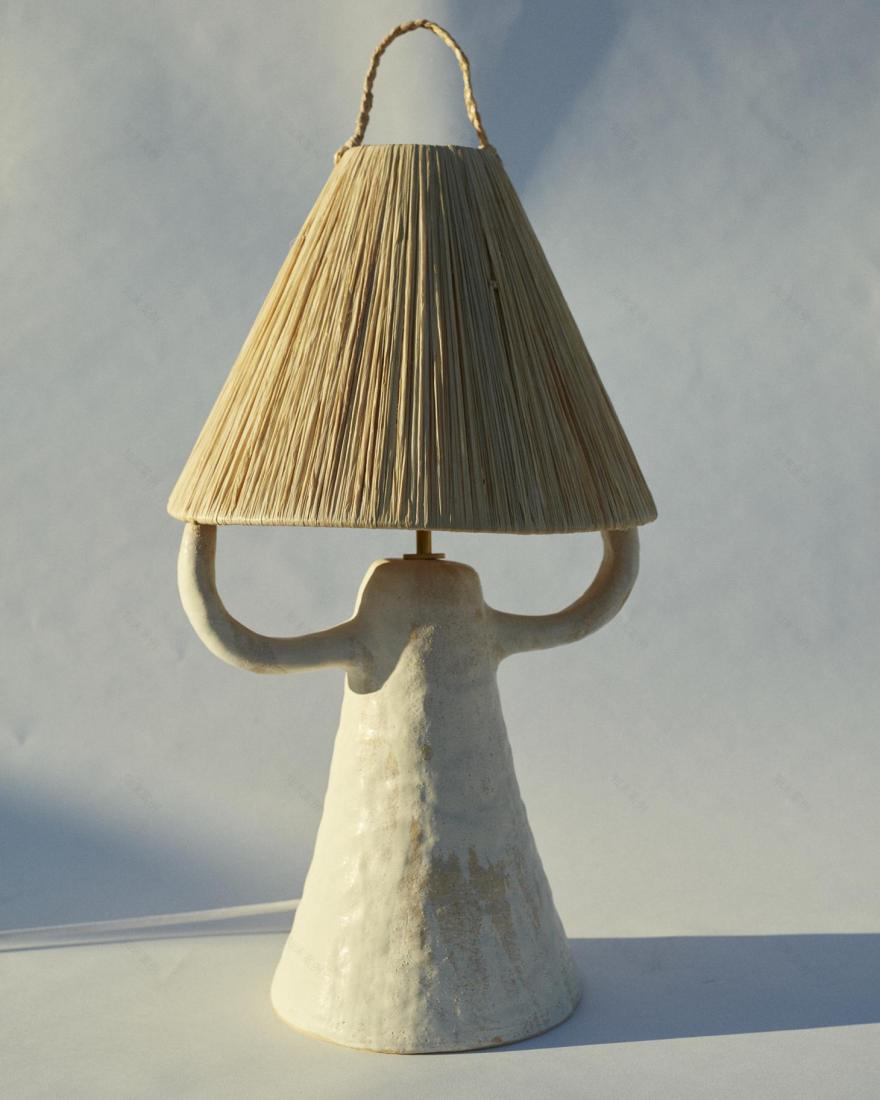查看完整案例


收藏

下载

翻译
TRNK NYC presents Provenanced, featuring work by contemporary global practices alongside vintage pieces to highlight the overlooked ways in which African and Indigenous cultures have impacted design over the years
The virtual exhibition is staged as a museum-like setting, a minimalist display that command the viewer’s full attention. ‘The idea was to stage the works from the vantage point of a voyeur, alone at the museum after hours,’ says TRNK NYC founder Tariq Dixon
With the discussions about boosting diversity in design largely focused on the present and future, a new virtual exhibition assembled by TRNK NYC is casting the spotlight on how the design world has in fact been influenced by African and Indigenous aesthetics for years. Reflected in work originating from a global assembly of contemporary designers as well as vintage pieces of African origin, Provenanced investigates the different ways in which designers have referenced African and Indigenous culture, whether intentionally or not. ‘When national conversations around race materialized in June, I felt like there was an opportunity to expand the dialogue within the design world,’ recaps TRNK NYC’s founder Tariq Dixon. ‘The most visible conversations were centered around representation, diversity, and inclusion, without unpacking how these same systems influence the formal qualities of the works we produce.’ ‘One prime example is the theme that Provenanced explores – the overlooked ways in which African and Indigenous art forms have so profoundly influenced western visual languages, dating back to early twentieth-century modernist and art deco movements. These cultures have forever changed how the western world thinks about form, lines, abstraction, and materiality, but those contributions have been largely erased by history books,’ continues Dixon.
The Dona lamp by ceramicist Marta Bonilla
In the virtual exhibition, pieces from six contemporary design favourites are displayed in a reverent, museum-like setting. Works by Rooms Studio from Tbilisi, Georgia, the Ethiopian American artist Jomo Tariku, ceramicist Marta Bonilla from Barcelona, Ewe Studio from Mexico City, the Sardinian design practice Pretziada and the Rhode Island-based design duo Ben & Aja Blanc are further complemented by several vintage masks and an antique chair sourced from Form Atelier, a Brooklyn-based showroom and creative consultancy that looks for connections between art, design and furniture. Thanks to the creation of a cinematic, yet minimalist environment, the works on display command the viewer’s full attention. ‘The idea was to stage the works from the vantage point of a voyeur, alone at the museum after hours,’ Dixon shares. ‘We wanted viewers to interrogate the designs from more of an art-critical lens, so we chose to display the works in a format more similar to fine art.’
‘However, I wasn’t even aware of some of my own biases when making some of the creative decisions. I was reading the book Metropolitan Fetish by John Warne Monroe [in which] he discusses how Parisian auction houses would photograph African works against dark backgrounds with strong, high contrast lighting – a stark departure from how they photograph works by western artists. The intention was to evoke an air of mysticism and spirituality. So it’s quite possible that some of the creative decisions were by-products of how we’ve all been conditioned to understand these cultures and art forms.’
The list of designers Dixon has assembled represents a range of origin stories and levels of intentionality, while maintaining a powerful visual cohesion and seamlessness that makes the connections between past and present unequivocal.
Jomo Tariku’s Nyala chair
’For some of the designers, these cultures are primary sources of inspiration, and essential to their brand ethos. For others, the connections are more vague, perhaps two or more degrees of separation removed (i.e. by way of referencing twentieth-century modernists like Picasso and Brancusi), but the relationship is nonetheless real,’ he asserts.
‘The diversity expresses how broad and persistent these historical contributions truly are. But even so, the show is by no means comprehensive. We could have also examined the ways in which African and Indigenous art influenced everything from Memphis Milano to Bauhaus to pop artists like Keith Haring. Perhaps we’ll revisit those explorations another day.’ §
Spanish ceramicist Marta Bonilla’s Dona Lamp, whose shape is inspired by a woman with her arms raised and traditional depiction of the female figure
A pair of mirrors by Ben & Aja Blanc frame TRNK’s Segment chair upholstered in fabric inspired by Central African Kuba textiles
The Pomegranate chair by Rooms Studio. Part of the Georgian design practice’s Wild Minimalism Collection, a creative effort to go back to their roots: ’in today’s restless world, unfolding hidden treasures of our historic roots, is what grounds us and brings us closer to our true selves,’ says co-founder Nata Janberidze
A view of the virtual exhibition featuring chairs by Rooms Studio and Pretziada and a vintage mask by Brooklyn-based Form Atelier
The Ines chair by Sardinian design lab Pretziada. ’We see Provenanced as an opportunity to go a bit further at examining what happens when certain concepts become part of a shared aesthetic history, as well as what our specific role in that history is,’ comments co-founder Kyre Chenven
客服
消息
收藏
下载
最近











